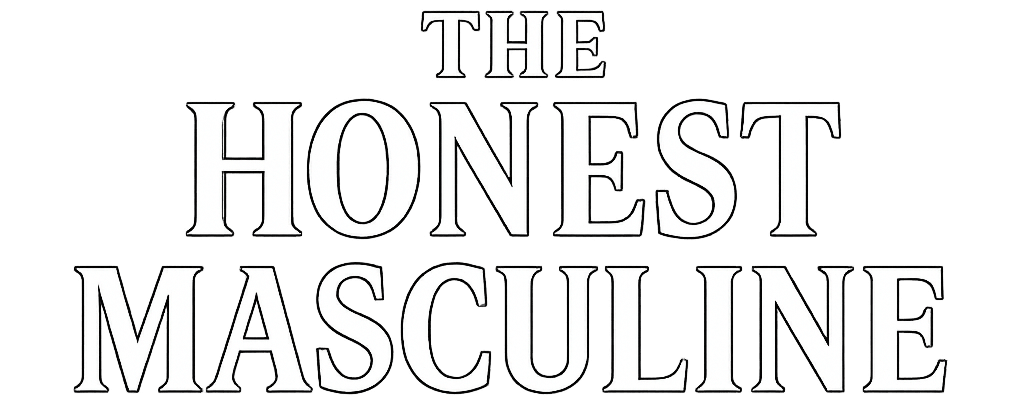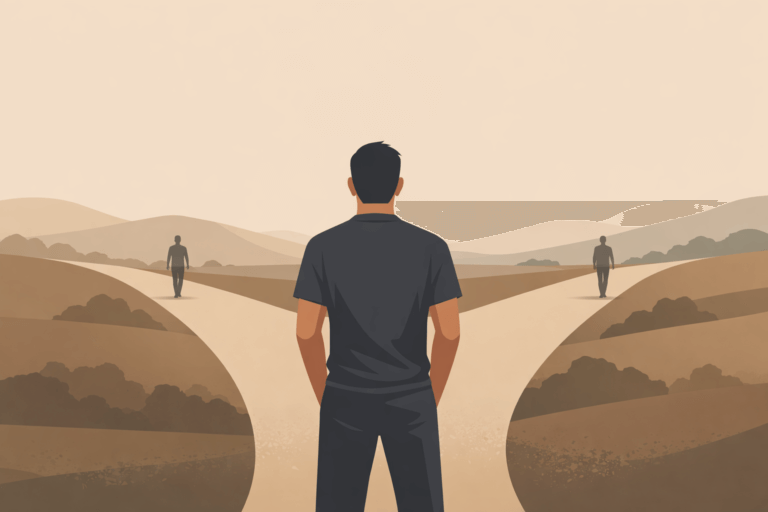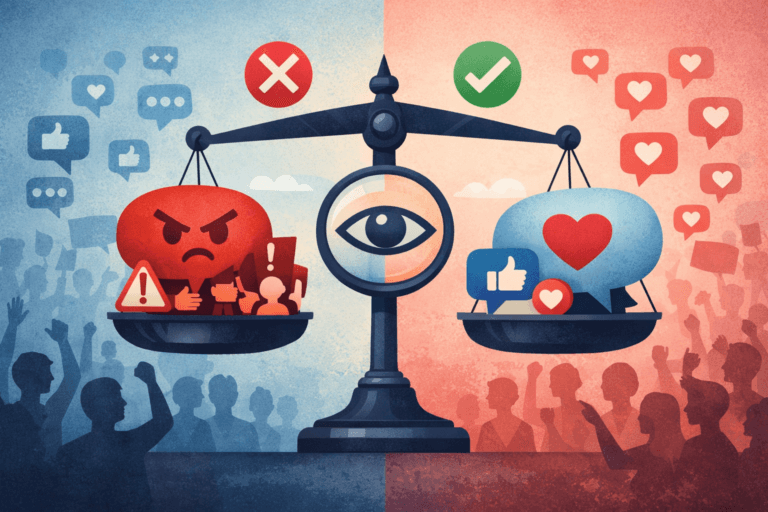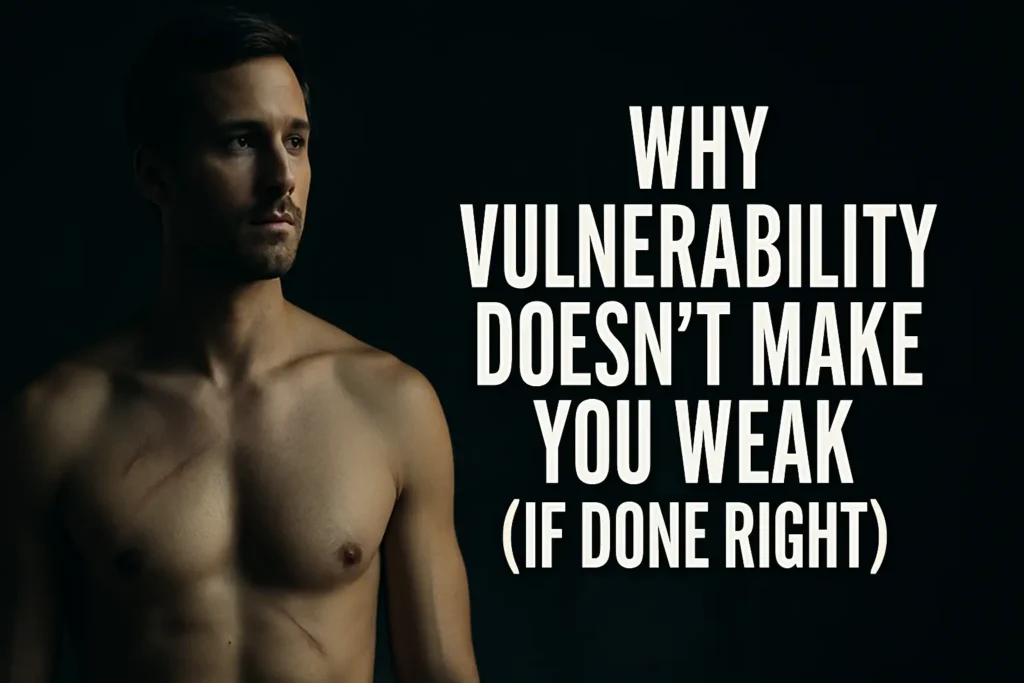
Table of Contents
Introduction
Most men live like they’re fine when they’re falling apart. They’ve been taught that showing cracks makes them weak, so they hide everything until the weight crushes them.
Others go the opposite way. They hear the cultural message to “just open up,” and they spill their guts without control — oversharing with women, coworkers, or strangers online. That doesn’t build respect either. It kills it.
This is why brotherhood matters. In the right spaces, vulnerability isn’t weakness. It’s fuel. It’s men sharpening each other, holding each other accountable, and refusing to let one rejection or failure define them.
The truth is this: masculinity isn’t about hiding forever, and it’s not about bleeding out for sympathy. It’s about owning your scars without collapsing under them. Vulnerability done right makes you stronger. Done wrong, it makes you fragile.
The Cultural Lie About Vulnerability
Modern culture keeps shouting the same message at men: “Just open up. Share everything. Be vulnerable.”
On the surface, it sounds good. But here’s the catch — the world doesn’t actually respect men who take that advice literally.
When a man confuses vulnerability with oversharing, he ends up doing one of two things:
- Emotional dumping. He spills all his fears, insecurities, and pain without any control or structure. Instead of strength, he projects chaos.
- Begging for validation. He shares not to connect, but to get comfort and reassurance. And every time he does, he bleeds authority.
Society pretends it celebrates male vulnerability. But when men actually unload without frame, the same people who said “just open up” quietly lose respect for them. Women pull back. Friends distance themselves. Employers question their reliability.
This isn’t because men can’t be vulnerable. It’s because vulnerability without strength behind it isn’t vulnerability — it’s weakness.
The Difference Between Weak & Strong Vulnerability
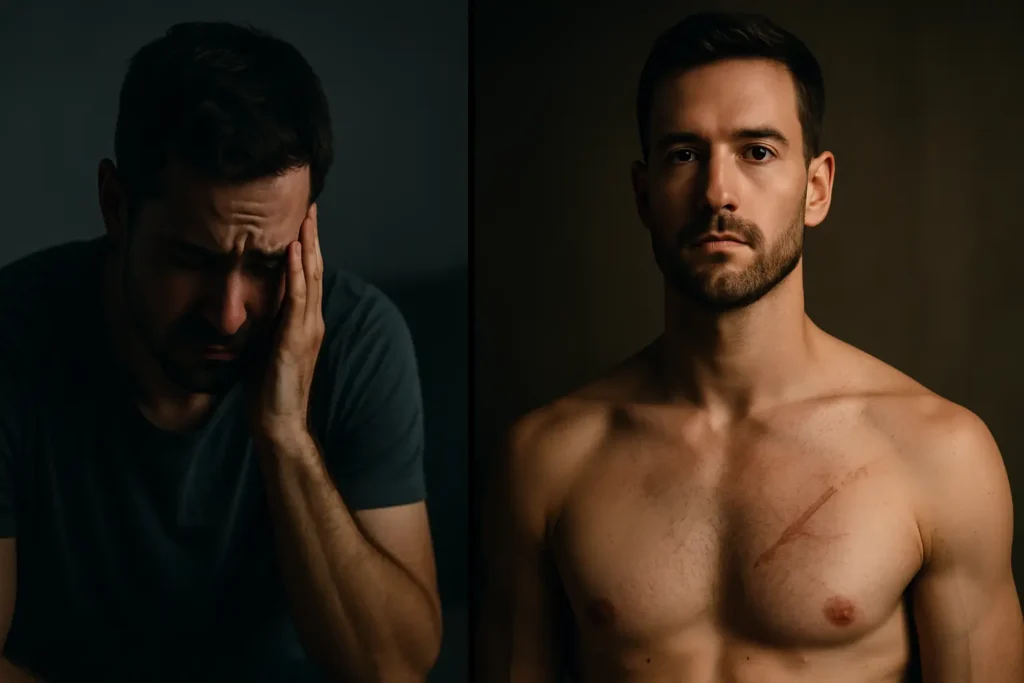
Not all vulnerability is created equal. One form destroys respect. The other deepens it.
Weak Vulnerability
Weak vulnerability is about neediness. It’s when a man exposes his wounds to get sympathy, approval, or rescue.
- Oversharing every detail of his pain to strangers.
- Breaking down in front of a woman to make her “prove” she cares.
- Confessing insecurities but doing nothing to change them.
This doesn’t inspire trust — it drains it. Weak vulnerability feels like dumping your baggage in someone else’s lap.
Strong Vulnerability
Strong vulnerability is ownership. It’s showing your scars while standing tall. It’s saying, “Here’s where I’ve been broken. Here’s how I rebuilt. Here’s what I learned.”
- Sharing a past struggle as a lesson, not a plea.
- Admitting a mistake while showing the plan to correct it.
- Revealing pain without losing composure.
Strong vulnerability creates connection because it’s grounded in self-respect. You’re not asking for rescue. You’re revealing truth — and showing the strength it took to face it.
Why Women Respond Differently to Male Vulnerability
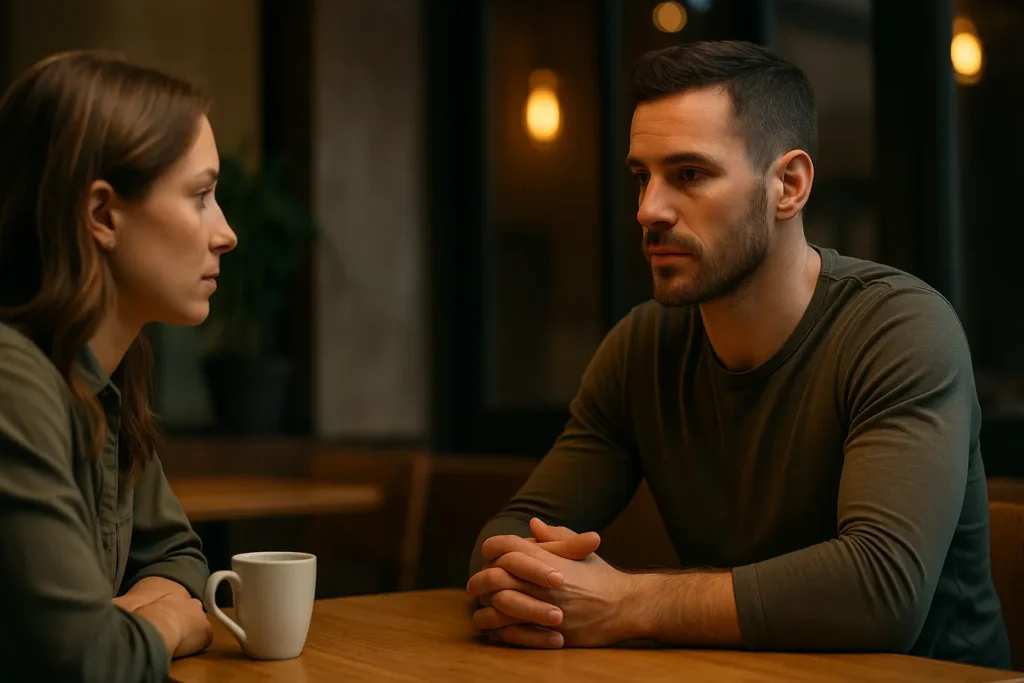
Women will tell you they want men to “open up.” And they mean it — but only to a point.
What they really want is strong vulnerability. A man who can reveal his truth without collapsing. A man who shares his pain, but from a position of control.
Here’s how it plays out:
1. Vulnerability With Strength Attracts
When you reveal something real — but do it calmly, without losing your frame — it deepens connection.
- “I went through a brutal divorce. It crushed me at first, but it forced me to rebuild my discipline.”
That’s vulnerability. But it also radiates strength. It shows scars and the steel forged beneath them. Women respect this because it signals depth and stability.
2. Vulnerability With Neediness Repels
Compare that to dumping:
- “I don’t know if I’m good enough… I feel like everyone leaves me… I just need you to reassure me.”
That isn’t vulnerability. That’s neediness. It’s outsourcing your emotional stability to her. And the moment she feels she has to hold you up, attraction dies.
3. Why the Double Standard Exists
It may not sound fair, but it’s reality: a man’s frame is tested differently than a woman’s. Women can collapse into emotion and still be respected. Men can’t. The masculine role is stability. When you lose that, you lose respect.
The Masculine Framework for Vulnerability
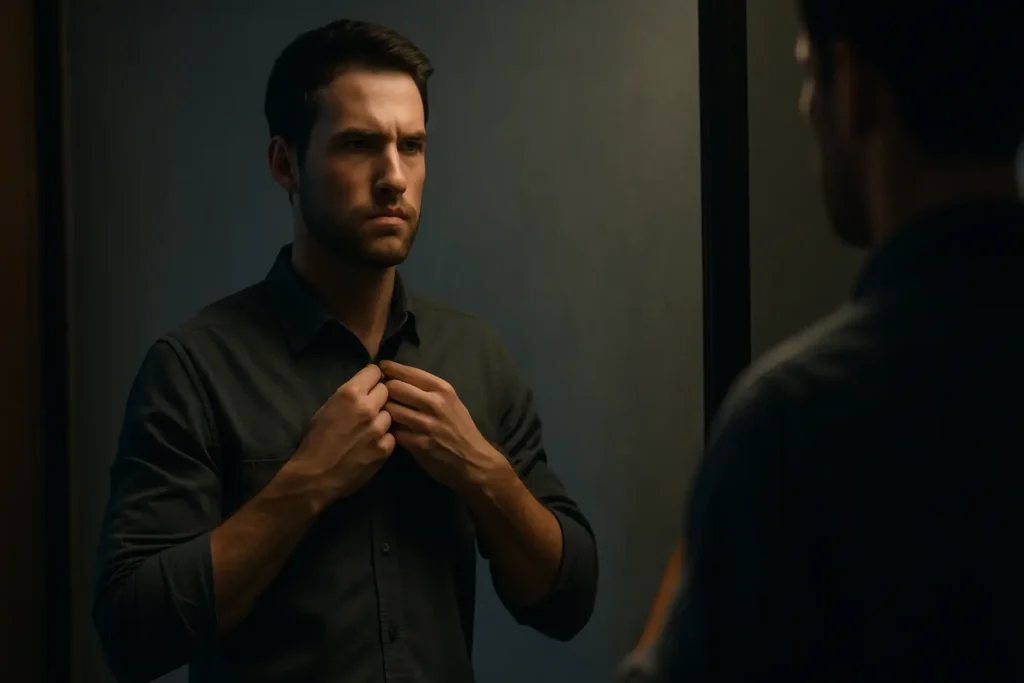
Vulnerability is powerful — but only when it’s framed in strength. Here’s how to do it without bleeding respect:
1. Anchor First
Don’t lead with vulnerability. Lead with strength. Establish your stability, your composure, your direction. Then, when you share something raw, it’s framed as depth — not desperation.
Example: a man who lives with discipline and purpose admits, “I’ve battled depression before.” It lands completely differently than the man who leads with depression as his entire identity.
2. Share With Purpose
Don’t share for pity. Share for impact. Vulnerability should have a “why” behind it — whether that’s teaching, connecting, or offering perspective.
- Wrong: “I’m lost, please tell me I’m okay.”
- Right: “I’ve been lost before — here’s what I learned, and how I climbed out.”
Purpose turns vulnerability from weakness into leadership.
3. Choose the Setting
Not every space deserves your vulnerability. Brotherhood is where you can bleed without losing respect. Trusted partners, maybe. Strangers on the internet? Not always. Dumping raw pain into the wrong space doesn’t heal you — it just undermines you.
Masculine vulnerability = anchored, purposeful, intentional. Not a cry for help, but a demonstration of strength through honesty.
Vulnerability in Brotherhood
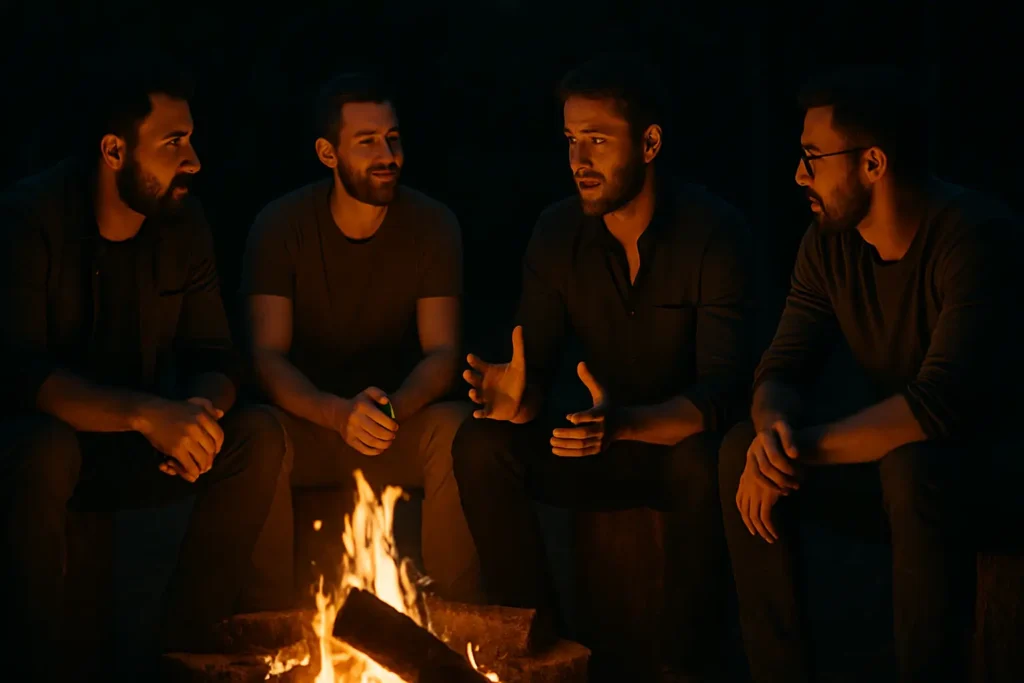
Every man needs a place where he can put the armor down. That place isn’t with everyone. It’s not with strangers. And it’s not about emotional dumping. It’s with brothers who get it.
1. Why Men Need Brotherhood to Bleed
When you carry everything alone, vulnerability turns into isolation. You drown in your own head. But when you share raw truth with other men who have scars of their own, something shifts. Pain stops being shameful. It becomes shared.
2. Brotherhood Strengthens, Not Weakens
Real brotherhood isn’t about coddling. It’s about sharpening. When you admit struggle, brothers don’t just nod — they push back, they remind you of your strength, they hold you accountable. Vulnerability here doesn’t strip your masculinity; it forges it deeper.
3. Why Brotherhood Beats Oversharing
Telling a woman every insecurity can kill attraction. Telling your boss every fear can kill respect. But telling a trusted group of men what you’re wrestling with? That can save your life. It’s where you bleed without losing authority.
4. Vulnerability as Bond
Shared vulnerability is the glue of masculine brotherhood. Men who have gone to war together — literally or metaphorically — form bonds because they’ve seen each other’s weaknesses and watched each other stand back up.
Brotherhood is where vulnerability becomes fuel instead of liability. It’s the safe forge where men burn off weakness and emerge stronger.
Conclusion
Vulnerability doesn’t make you weak. Lack of control does.
The men who collapse into oversharing, emotional dumping, and begging for validation aren’t being “real” — they’re bleeding out in public, hoping someone else will patch them up. That’s not strength. That’s dependence.
Real vulnerability is different. It’s standing tall with your scars in full view. It’s saying, “Here’s where I’ve been broken. Here’s what I’ve learned. And here’s how I keep moving.”
Women respect it when it’s framed in strength. Brotherhood demands it as a pathway to growth. And your own self-respect depends on it.
The strongest men aren’t the ones who never bleed. They’re the ones who can bleed without losing composure.
So don’t run from vulnerability. Master it. Use it. Make it part of your masculine edge.
Because the truth is this: Weak men hide everything. Boys overshare everything. Strong men reveal just enough to show the world they cannot be broken.
👉Want to reclaim your life?
Join My Newsletter The Honest Masculine weekly newsletter — and you’ll get instant access to my (The Masculine Comeback: A 7-Day Reset for Men Who Feel Lost). No fluff, no filters. Just raw truths about breakups, masculinity, fatherhood, and the quiet battles men face alone.
It’s for the man who’s done pretending.

If you like my content? Let me know by Buying me a coffee. Thanks 🙂
